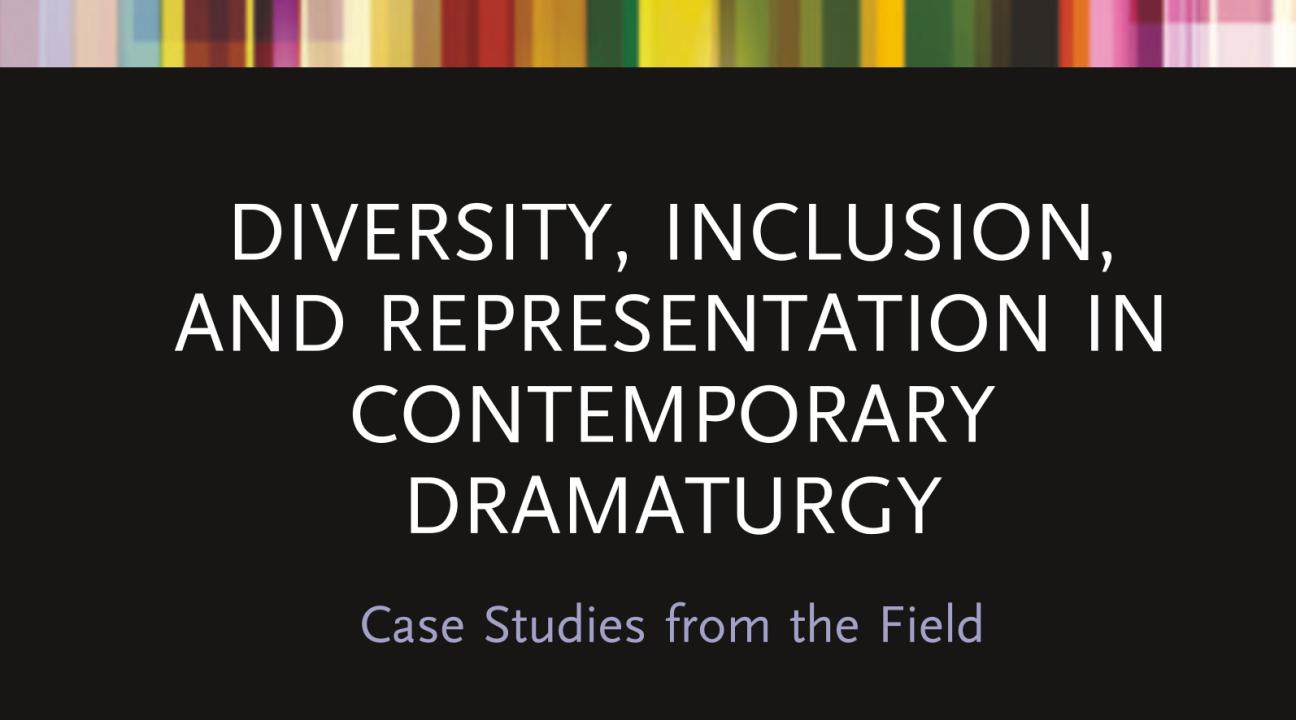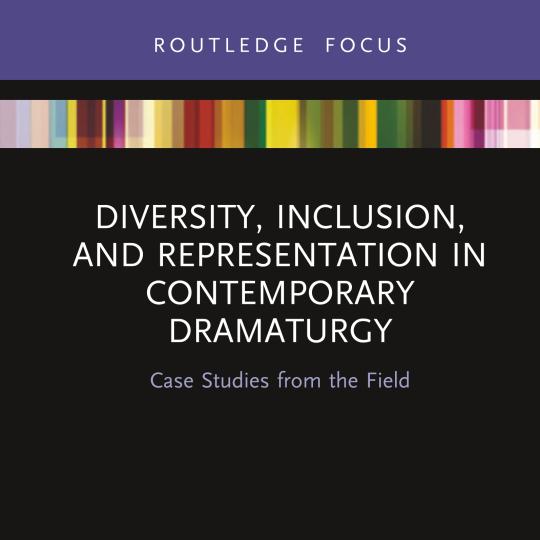THAR Professor Authors Book Chapter
Scott Horstein, Associate Professor, Director of the Theatre Studies Program, and teacher of courses in dramaturgy, playwriting, theater history, and dramatic literature, has written a book chapter in the publication of: Diversity, Inclusion, and Representation in Contemporary Dramaturgy: Case Studies from the Field.
In the Department of Theatre Arts & Dance we are thankful to have involved professors who are committed to the education of their students and who continue their intellectual and artistic study and practice outside the classroom. Whenever we learn of an accomplishment made by the faculty in our department we are happy to celebrate with them and are proud to acknowledge their work.
In the published volume: Diversity, Inclusion, and Representation in Contemporary Dramaturgy: Case Studies from the Field, edited by Philippa Kelly and published by Routledge, Professor Scott Horstein has written a chapter titled, “Dramaturgy as Prophecy: Facing Our Truth and Dramaturging the Predominantly White Institution” which appears second in the volume. The chapter discusses the performance Facing Our Truth: Ten-Minute Plays on Trayvon, Race, and Privilege for which he was Production Director and which Kim Hester-Williams (ENGL/AMCS) and Lauren Morimoto (KIN) both directed plays in the project, and the HUB and the Black Student Union were partners.
Below is an an abstract, a review, and a description of the volume.
ABSTRACT - “Dramaturgy as Prophecy: Facing Our Truth and Dramaturging the Predominantly White Institution” by Scott Horstein
Dramaturgy is as an act of prophecy. In Black radical thought, and specifically in Cornel West’s notion of prophetic criticism, prophecy is an ethically engaged criticism, an active bearing of witness. Similarly, the dramaturg articulates what they see and advocates for alternatives, for action and change. Written as first-person field notes from a university production, the author investigates his own positionality as a White faculty member attempting a dramaturgical act of prophecy and social justice through performance at his PWI (Predominantly White Institution). The making of the performance, staged readings of Facing Our Truth: Ten-Minute Plays About Trayvon, Race, and Privilege, brings up cultural flash points regarding casting and campus impact, and suggests points of engagement, action, and reflection for theater artists on campuses in cultural transition.
******
"This remarkable collection of case studies sheds light on one of the least understood and yet crucially important aspects of contemporary theater practice: the role of the dramaturg. By turns, innovator, instigator, cultural historian, interpreter, provocateur, and visionary, the dramaturg shapes the lived experience of actors and audiences alike. In an illuminating introduction and a moving epilogue, Philippa Kelly shows that the diverse and distinctive voices assembled here are agents of radical change in the theater and in the world beyond its boundaries."
-Stephen Greenblatt, author of Will in the World: How Shakespeare Became Shakespeare
******
Diversity, Inclusion, and Representation in Contemporary Dramaturgy: Case Studies from the Field offers fresh perspectives on how dramaturgs can support a production beyond rigid disciplinary expectations about what information and ideas are useful and how they should be shared.
The sixteen contributors to this volume offer personal windows into dramaturgy practice, encouraging theater practitioners, students, and general theater-lovers to imagine themselves as dramaturgs newly inspired by the encounters and enquiries that are the juice of contemporary theater. Each case study is written by a dramaturg whose body of work explores important issues of race, cultural equity, and culturally-specific practices within a wide range of conventions, venues, and communities. The contributors demonstrate the unique capacity of their craft to straddle the ravine between stage and stalls, intention and impact.
By unpacking, in the most up-to-date ways, the central question of “Why this play, at this time, for this audience?,” this collection provides valuable insights and dramaturgy tools for scholars and students of Dramaturgy, Directing, and Theater Studies.



